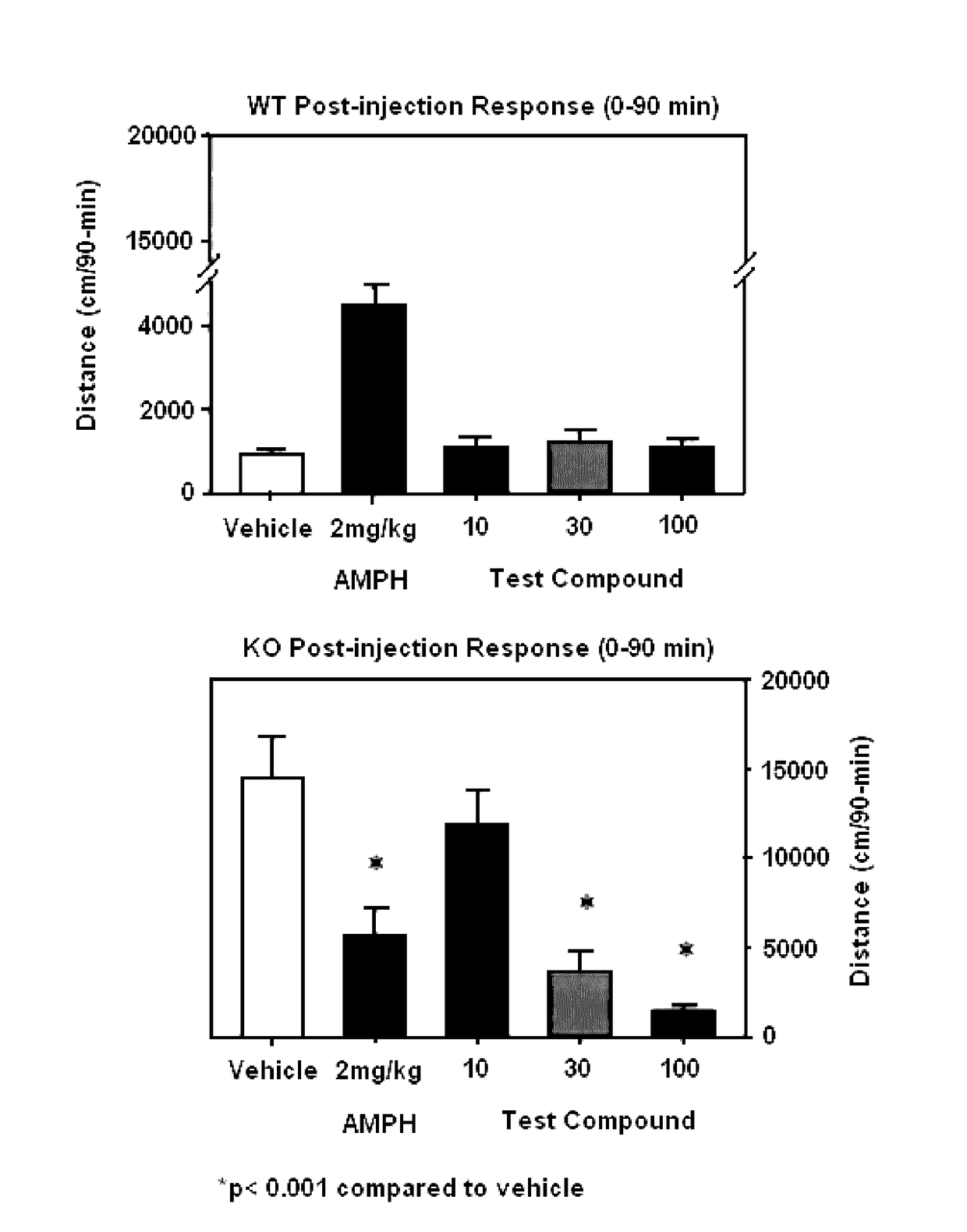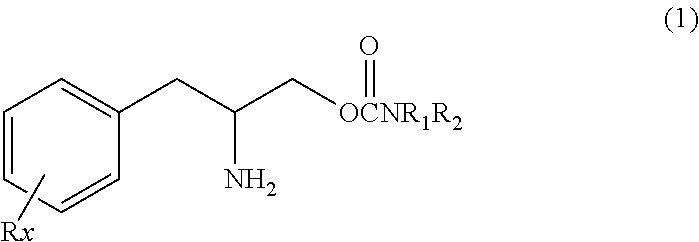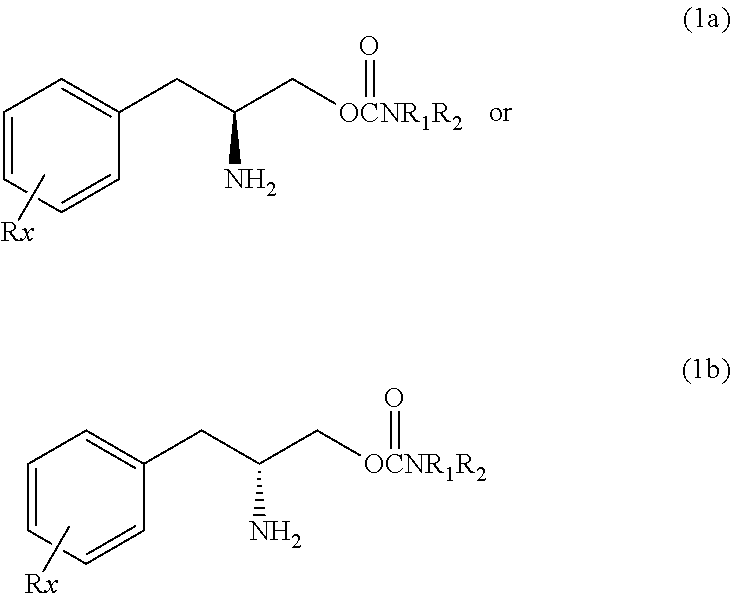Methods for treating bipolar disorder
a bipolar disorder and treatment method technology, applied in the field of bipolar disorder treatment method, can solve the problems of lithium unquestionably being effective, manic episode, intense feelings of sadness/worthlessness of patients,
- Summary
- Abstract
- Description
- Claims
- Application Information
AI Technical Summary
Benefits of technology
Problems solved by technology
Method used
Image
Examples
example 1
[0115]O-carbamoyl-(D)-phenylalaninol (hereinafter, referred to ‘test compound’) was tested for the effects on the forced swimming test, an animal model of depression, in both mice and rats. After single doses of the test compound the mean duration of immobility was reduced with an ED50 (median effective dose) of 16.6 mg / kg PO (per os) in mice and 18.5 mg / kg PO in rats. The test compound was even more potent after multiple dosing in mice with an ED50 of 5.5 mg / kg PO. These data suggest that the test compound shows antidepressant properties.
[0116](Methods)
[0117]Male CD-1 mice (16-24 g) and male Wistar rats (90-125 g) were utilized in these experiments. The test compound (10, 15 and 30 mg / kg) was dissolved in physiological saline (0.9%) and administered orally in a volume of 1 mL / 100 g body weight.
[0118]Mice and rats were placed in glass cylinders of 1000 ml beakers (height 14 cm, diameter 11.5 cm) and 4000 ml beakers (height 24.5 cm, diameter 18.0 cm), respectively, containing water (...
example 2
[0125]The test compound was tested for binding to the dopamine, norepinephrine and serotonin transporters and for the effects on dopamine, norepinephrine and serotonin reuptake. The test compound showed weak binding to the dopamine and norepinephrine transporter and weak effects on dopamine and norepinephrine reuptake compared to cocaine.
[0126](Methods)
[0127]The test compound was weighed and dissolved in DMSO (dimethyl sulfoxide) to make a 10 or 100 mM stock solution. An initial dilution to 50 or 500 μM in assay buffer for binding, or to 1 or 10 mM in assay buffer for uptake, was made. Subsequent dilutions were made with assay buffer supplemented with DMSO, maintaining a final concentration of 0.1% DMSO. Pipetting was conducted using a Biomek 2000 robotic workstation. The concentrations of the test compounds are shown in following Table 1.
[0128]
TABLE 1Concentrations of Test Compound testedConcentrationAssayRangeBindinghDAT (human dopamine transporter)21.6 nM-100 μMhSERT (human serot...
example 3
[0142]The test compound administered at 10, 30 and 100 mg / kg subcutaneously (SC) was assessed to determine the influence on spontaneous activity of wild-type and homozygous mutant dopamine transporter knockout (KO) mice. The test compound selectively reduced activity of the KO mice in a dose-dependent manner suggesting that the test compound was highly efficacious in depressing hyper motor activity in dopamine transporter KO mice.
[0143](Methods)
[0144]Male and female wild-type and homozygous mutant dopamine transporter KO mice (n˜10 mice / genotype / agent; produced by in vivo homologous recombination and bred at Duke University Medical Center, Durham, N.C.) were tested for spontaneous activity in the open field following a single injection of the vehicle or compound. Mice were placed into the open field for 30 min and administered SC the vehicle (sterile water), 2 mg / kg amphetamine, or three concentrations of the test compound (10, 30, 100 mg / kg). All drugs were given in a volume of 5 m...
PUM
| Property | Measurement | Unit |
|---|---|---|
| weight | aaaaa | aaaaa |
| height | aaaaa | aaaaa |
| height | aaaaa | aaaaa |
Abstract
Description
Claims
Application Information
 Login to View More
Login to View More - R&D
- Intellectual Property
- Life Sciences
- Materials
- Tech Scout
- Unparalleled Data Quality
- Higher Quality Content
- 60% Fewer Hallucinations
Browse by: Latest US Patents, China's latest patents, Technical Efficacy Thesaurus, Application Domain, Technology Topic, Popular Technical Reports.
© 2025 PatSnap. All rights reserved.Legal|Privacy policy|Modern Slavery Act Transparency Statement|Sitemap|About US| Contact US: help@patsnap.com



